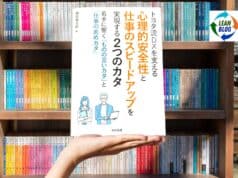Hat tip to John Shook and the Lean Enterprise Institute for pointing this out via his email newsletter — today would have been the 100th birthday of Taiichi Ohno, usually credited as one of the creators of the Toyota Production System, the basis for “Lean.”
See his profile on Wikipedia — Taiichi Ohno (February 29, 1912 – May 28, 1990)
Today is a good day to reflect on what we've learned from Ohno. I will go grab a book off the shelf and you can read some of Ohno for free via Google Books. You can also buy books by him or about him via Amazon.com (affiliate link). Please add your thoughts and reflections as a comment to this post. What did you learn from Ohno and how have you applied it? I'll update the post with my thoughts.
I will ask Jon Miller, of Gemba Panta Rei and the Kaizen Institute if their founder Masaaki Imai has any reflections, as he learned from Ohno directly. I will also reach out to Norman Bodek to see if he has any comments since he published Ohno's book Toyota Production System: Beyond Large-Scale Production. Update: I'm going to record a video podcast with Norman tomorrow and he will tell stories about Mr. Ohno.
I'm also trying to get comments from Sami Bahri, DDS (the “world's first Lean dentist”) since he read Ohno's work and applied it to his practice. Also reaching out to Eric Ries, who has found Ohno's work influential in the Lean Startup methodology, as well.
Some Ohno quotes from this post's comments:
Via Bill Waddell:
“All we are doing is looking at the time line, from the moment the customer gives us an order to the point when we collect the cash. And we are reducing the time line by reducing the non-value adding wastes.”
That same idea applies very well in healthcare — reducing the time from when a customer / patient requests an appointment / care / surgery to the point of delivering that care to the point of getting paid.
Another great Ohno-ism:
“Why not make the work easier and more interesting so that people do not have to sweat? The Toyota style is not to create results by working hard. It is a system that says there is no limit to people's creativity. People don't go to Toyota to ‘work' they go there to ‘think'”
And:
No one has more trouble than the person who claims to have no trouble.
That sounds like an early version of the oft-cited Toyota expression “No problems is a problem.”
And:
“One thing you can't recycle is wasted time .”
(Picture from www.gembapantarei.com)
What do you think? Please scroll down (or click) to post a comment. Or please share the post with your thoughts on LinkedIn – and follow me or connect with me there.
Did you like this post? Make sure you don't miss a post or podcast — Subscribe to get notified about posts via email daily or weekly.
Check out my latest book, The Mistakes That Make Us: Cultivating a Culture of Learning and Innovation:










I liked how Shook wrapped up his e-letter:
Some of the birthday greetings for Ohno on Twitter, from around the world in different languages:
http://yfrog.com/13c5p
My friend Brian Buck’s review of the book “The Birth of Lean” that features a lot about Ohno:
http://passthebuck.wordpress.com/2009/07/01/book-review-the-birth-of-lean/
The book “Lean Thinking” introduced me to Taiichi Ohno. Then, after reading his books several times, I began to understand their first layers of knowledge.
When we (at Bahri Dental) didn’t know where to start our lean journey, we found out how he started and emulated his efforts. “The Toyota Production system started when I challenged the old system…, as an experiment, I arranged the various machines in the sequence of machining processes…,” he wrote. That created problems, of which he said: “As these problems became clearer, they showed me the direction to follow.”
From that, and from other authors’ writings, we understood that Ohno was striving toward a one-piece flow production system, and that continuous improvement meant solving the problems that hinder that flow. Continuous improvement toward one-piece flow became our aim. When obstacles stopped our progress, we often found in Ohno’s books the answers that allowed us to move forward.
Ohno started with tools, just like most of us. The rest of the Toyota Production System grew from learning how to use those tools for improving the production flow. We copied that path too!
One might say that Ohno spread TPS through leadership, persistence, will-power, etc. I say that his writings exude sincerity in finding real solutions to people’s problems, and that seems to have fueled his efforts. Sincerity makes his persistence and his perpetual search for perfection feel like the normal thing to do.
Thank you Mr. Ohno; what you taught us has improved our lives and those of our patients.
You have certainly left our world much better than you found it!
Happy Birthday!
Here are comments from Masaaki Imai, who worked with Mr. Ohno:
LINK
Podcast with Norman Bodek and his memories of working with Ohno:
http://leanblog.org/141
Podcast with “Lean Startup” guy Eric Ries talking about how Ohno’s work influenced him:
https://www.leanblog.org/142
[…] Ohno had on his work and the Lean Startup movement. This discussion took place just after the 100th anniversary of Mr. Ohno’s birth. Read and listen to reflections from others, including Norman Bodek and Sami Bahri […]